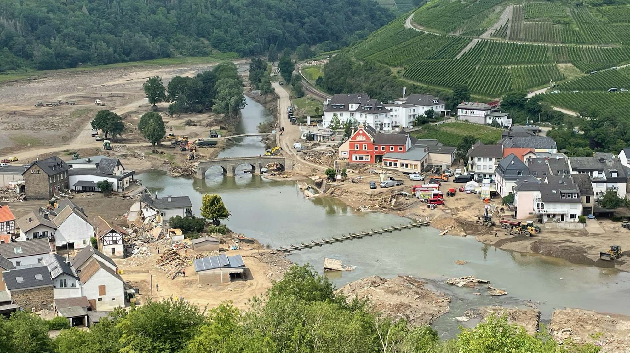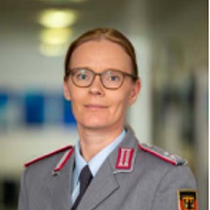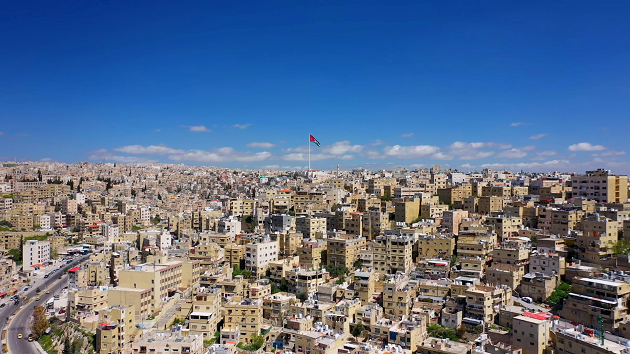The 2026 Expert Course on Climate, Inequality and Security addresses climate change from a security policy perspective. After an introduction in Berlin, the seminar visits Jordan and the United Arab Emirates.

Climate change is not an abstract threat for the future, but affects the lives of all people. Dangerous extreme weather events also occur in Germany, as shown by the devastating damage to the town of Rech in the 2021 Ahr valley flooding. Picture: Bundeswehr/PIZ Personal.
About the Course
The Expert Course on Climate, Inequality and Security is conducted by the Federal Academy for Security Policy on behalf of the Federal Chancellery. Based on the guiding principle of Integrated Security, the course addresses the effects of rapidly advancing climate change and offers the 16 participants:
- High level talks with Federal Government officials, scholars, representatives of business as well as experts from research institutes and civil society organisations
- Numerous discussions and excursions in Berlin
- A study tour to Jordan and the United Arab Emirates
- Access to an exclusive network of actors in the world of national and international security policy.
The President of the Federal Academy for Security Policy sends the invitation to nominate course participants directly to relevant government agencies, companies and civil society organisations.
Time frame and target group

Colonel (GS)
Katharina Benford
veranstaltungsbuero@baks.bund.de
Tel. +49 (0)30 4004 6306
The Expert Course on Climate, Inequality and Security is held as an on-campus seminar from 19 to 30 January 2026. It will take place in Berlin, Jordan and the United Arab Emirates. The course is conducted in German and in English during the study tour.
The Seminar is aimed at experienced senior officials and outstanding junior executive staff from the German federal and state ministries, from business, academia and politics, as well as civil-society organisations and media companies dealing with strategic and security-policy issues related to climate change and its effects. The groupis limited to 16 participants.
Schedule
The Expert Course lasts 12 days and is divided into two phases. During the introduction, the participants gain in-depth knowledge of the challenges and opportunities presented by climate change. In dialogue with national and international experts from politics, academia, business and society, course participants discuss the impact of climate risks, social inequality and geopolitical shifts at the strategic level. Excursions and talks in Berlin complement this exchange.
The subsequent study tour provides the opportunity to gain on-site experience: Jordan is an example of a country where the nexus of climate, inequality and security is particularly visible. As one of the world’s most water-scarce countries, the Kingdom is heavily affected by desertification, while it is also a host country for millions of refugees. Projects in the fields of water management and climate change adaptation highlight the urgency of developing sustainable solutions. In addition, the visit to the United Arab Emirates provides insights into a country that, despite its role as an exporter of fossil fuels, is considered a testing ground for the future of renewable energy and innovative projects to tackle climate change. The combination of the two destinations illustrates not only the range of challenges, but also possible responses to the effects of climate change and their security implications for Germany and Europe.

The Expert Course’s study tour begins in Amman. In Jordan, the nexus of climate, inequality and security is particularly visible. Picture: Unsplash/Daniel Qura
Focusing on climate
Climate change is not an abstract threat for the future, but a reality that affects the lives of all people. Extreme weather events, droughts, heat waves or floods – the impact is felt worldwide and has long affected Europe. The societal consequences range from rising energy and food prices to migratory movements and growing social and geopolitical tensions. Security of supply and international trade flows are under pressure. Countries of the Global South are particularly affected, while industrial states are under increasing pressure to act. At the same time, new markets and technologies are emerging – from renewable energies to water treatment and resilient urban planning. Accordingly, the adaptability of societies will be a key resource for the future.
Geopolitical tensions and the burden of migration and supply bottlenecks on fragile states are key security issues. Critical infrastructure such as power grids, water supply systems and transport routes is also under pressure from the effects of climate change. Against this backdrop, the expert course focuses on the strategic importance of climate change for security and stability. It examines geopolitical foundations, analyses regional conflict situations and discusses concrete options for action for Germany and Europe. In addition to fundamental issues, the course takes a close look at topics such as climate inequality, global tipping points, resilience strategies and the role of energy and resource policy within the scope of security policy. International practical examples show that the effects of climate change can exacerbate conflicts such as those in Somalia, the Sahel or Kashmir. At the same time, opportunities are opening up for cooperation and building resilience, for example through regional dialogue mechanisms or the sustainable use of resources.
